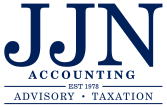What is PSI PSI is income produced primarily from your own personal services, skill, or labour. Income is classified as PSI when more than 50% of the consideration you receive for a particular contract or transaction is for your labour, skills, or expertise such as consulting, professional or other services. This regardless income was earned as a sole trader or through a separate entity rather than being employed directly by the customer. PSI rules were introduced through the Alienation of Personal Services Income Act 2000, as an anti-avoidance measure to ensure an individual does not lessen or defer their income tax by diverting income received from their personal services through companies, partnerships, or trusts. The Act inserted Part 2–42 “Personal Services Income” into the Income Tax Assessment Act 1997. Subsequently, on 31 August 2001, the Commissioner of Taxation issued further...
